It’s a woman’s world at this bustling Bengaluru market
In our first series on women at work, we stroll along the high street at Thippasandra market where, for women, it’s business as usual.

Women at work are everywhere – in glass-panelled offices, restaurants, buses, on the road, at sea and in air – the world is certainly their oyster.
When we wanted to start the Women at Work series we thought the best way was to start from the neighbourhood.
It took less than 10 minutes by autorickshaw through narrow, winding roads to reach Thippasandra market from our office.
It is a high street that houses both shops and stalls; some places are not really structured but that doesn’t really matter. It’s a typical Indian market, with its sounds, sights, smells and the inevitable burst of colour. As you saunter along, you can see almost everything is on sale here, from fruits and vegetables, flowers, groceries, fabrics to puja accessories.
It’s almost twilight as the fading sun rays fall on the fresh flowers in front of us. Three women are engaged in some high-pitched friendly banter. It’s a stall selling flowers and since I come with prior knowledge that most shopkeepers here speak Tamil, I ask the women who the owner is.
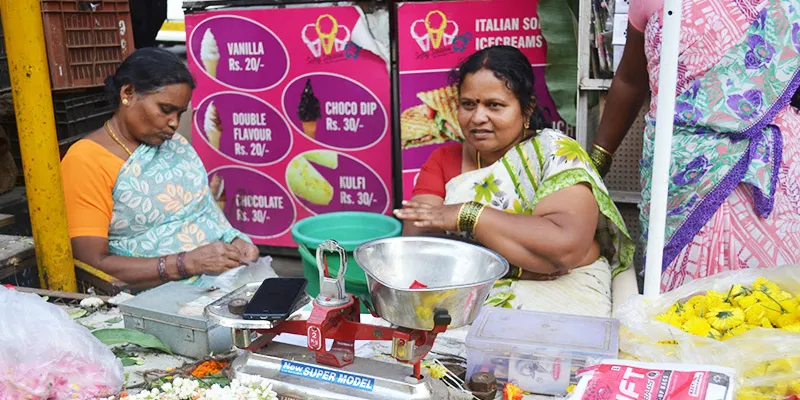
They point to Saraswathi, who sits between them.
“I have been selling flowers here for the past 30 years. I took over this stall from my mother. Thippasandra market is like my home,” she says, as she begins the conversation.
Talking about her daily routine, she says, “I get up at three am and go to the City Market (KR Market) to buy the flowers. I am here from morning until night. Times have changed and so has my business. There are very few people buying flowers, and even if they do, they complain they are expensive. Jasmine sells for Rs 4o a mozham (a fingertip to elbow measurement).”
“The domonetisation hit us hard. We didn’t have enough cash to procure flowers and people couldn’t buy from us either. I sell just enough for my family’s subsistence. I will be probably the last to run this flower stall. I don’t expect either of my children to take over,” she adds.
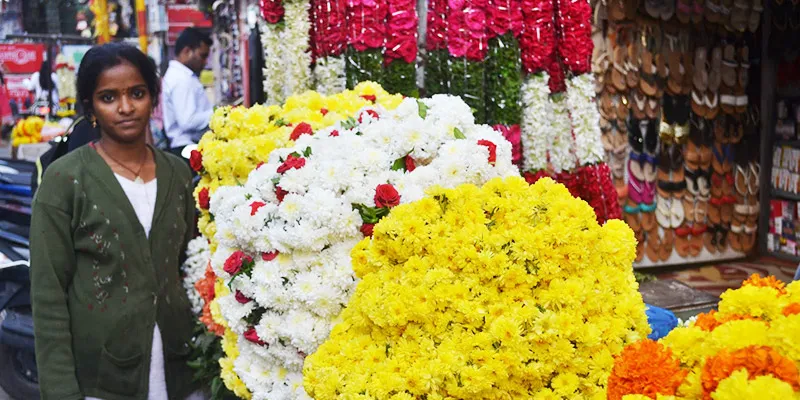
Nearby, Nandini is also selling flowers. The young mother of two runs her mother’s stall. “Profit is just for day-to-day existence. I cannot take up any other job as my children are little. Also, I don’t know any other job and this is the only workplace I am familiar with.”
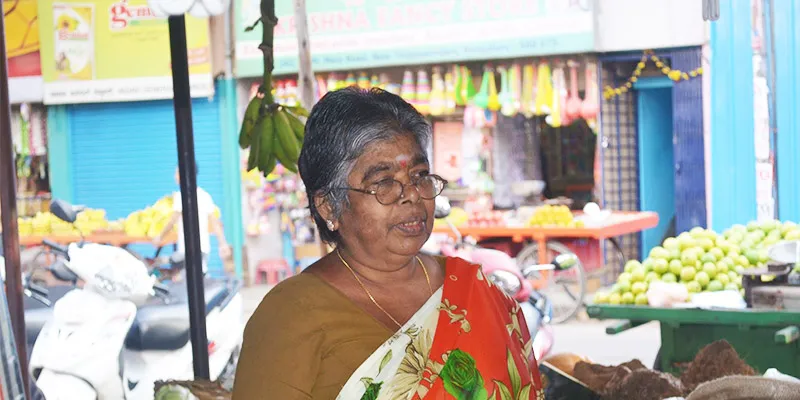
We move on, from flowers to vegetables across the road where 63-year-old Kaveri towers over a mid-sized vegetable stall. There are ripe pumpkins, fleshy gourds, luscious tomatoes, okras with ends that snap easily, tall drumsticks and even the rare seasonal jackfruit from Kerala.
Hers is no casual approach to business.
“I have been working at this market for 27 years. I start my day at 5.30am and take turns manning the stall with my son, daughter and sister. As with everyone else, we too get our vegetables from the city market. I don’t find any change between then and now, though business is not as good as before. We just make enough to live on,” she says.
The family has its roots in Tamil Nadu but has been in Karnataka for five generations. Despite being in business for a long time, she laments that they do not have their own house and are living in rented accommodation.
Kaveri echoes Saraswathi’s sentiment about not having anyone to take over. “I don’t think the next generation will want to run this vegetable stall. We will then go back to Mysuru, where the rest of the family lives,” she says with a sigh.
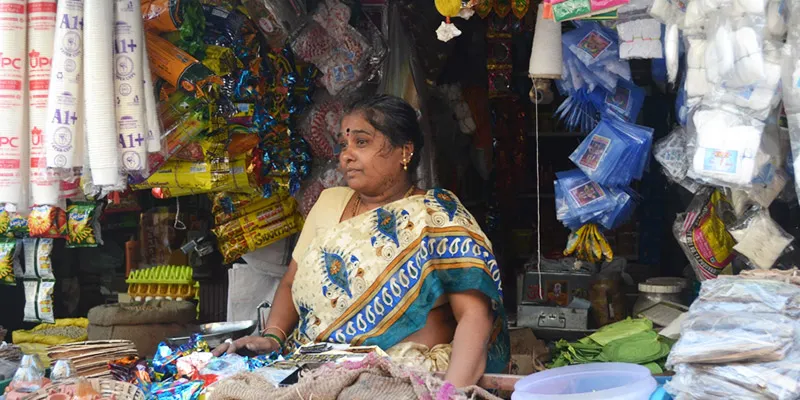
Sampoorna runs a shop that sells puja accessories. For 25 years, she ran a stall on the opposite end of the road selling greens. “I started working at the age of 10 with my mother. When we had to shut shop, I opened this one three years ago,” she says.
She points out that business is slow, and only picks up during festivals. “Thippasandra used to be a thriving marketplace, but now there is hardly any hustle-bustle here. We had a ‘cashflow’ problem during the demonetisation period that aggravated the situation. I work here from 11am until nine pm every day, even on weekends. I have no other option; this is my livelihood. I juggle work and home; what else can I do,” she laments.
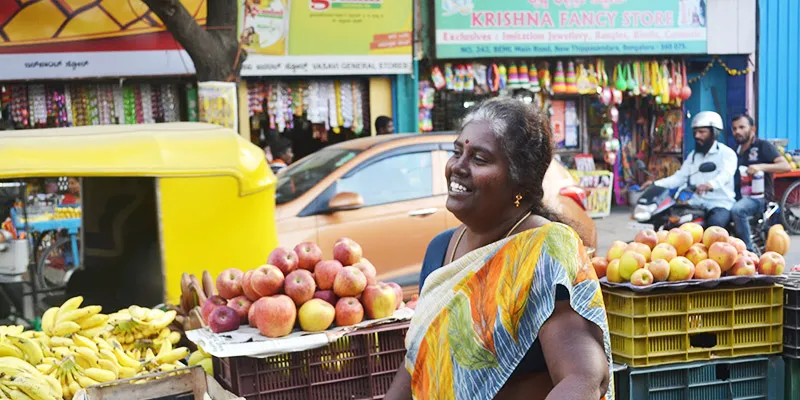
Things are not great with Gauri, the fruit-seller, either. She hails from Madurai and has been living in Bengaluru after getting married. “Business was good before but now with the influx of independent shops and online sellers, it’s not worth running a business here. I still go to the city market, buy fruits and come back and sell until nine in the night. Thankfully, I have regular customers and that helps a lot,” she says.
Though the Thippasandra market may have let go of some of its business sheen, its old-world charm with the voices of women sellers haggling and bargaining with a fierce determination is not yet lost.
There is optimism and may be with the introduction of new modes of payment and some novel ways of doing business will revive the city’s iconic market.
Business, though, will go on as usual.







